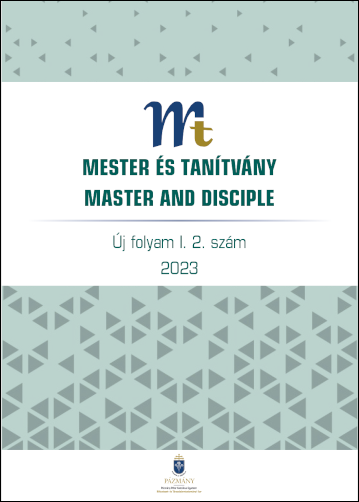Published 31-12-2023
Keywords
- Romanian early childhood education,
- institutional changes,
- nursery education
Copyright (c) 2023 Barabási Tünde, Stark Gabriella

This work is licensed under a Creative Commons Attribution 4.0 International License.
Abstract
Early childhood education in Romania belonged to the social sector before the 2022-2023 academic year, after which it was integrated into the education system in accordance with the emergency government decree 100/2021. At the same time, it is significant that the issues of nursery and kindergarten education already form a unit according to the 2019 early childhood education curriculum, which includes the development directions of both, the nursery and kindergarten levels as well. The effects of institutional changes have multiple effects on: nursery teachers, parents, kindergarten teachers. In our study, we present the characteristics of the practice of nursery education, as part of the education system, based on the experiences of nursery teachers. Our research questions are: to what extent it is consistent with the early childhood curriculum, and how prepared the nursery teachers are to apply the curricular requirements in their educational practice. According to the hypothesis of our questionnaire survey, nursery teachers are aware of the curriculum requirements, but the extent of their application is determined by the nursery teacher's prior education/qualification. Our results show that the nursery teachers know and understand well the types of activities and development areas appearing in the curriculum, but their practical appearance is influenced by the nursery teacher's studies. Overall, the study presents the nursery education practice appearing in the new institutional structure from the point of view of practicing teachers.
References
- *** 1/2011-es Oktatási Törvény (Legea educației naționale nr. 1/2011). https://www.edu.ro/sites/default/files/legea-educatiei_actualizata%20august%202018.pdf
- *** 100/2021-es Sürgősségi Kormányrendelet - Ordonanța de urgență 100 din 10 septembrie 2021 pentru modificarea și completarea Legii educației naționale nr. 1/2011 și abrogarea unor acte normative din domeniul protecției sociale
- *** 2019. A koragyermekkori nevelés curriculuma. Ministerul Educației și Cercetării, București.
- *** 566/2022-es Kormányrendelet – Hotărârea nr. 566 din 28 aprilie 2022, Metodologia de organizare și funcționare a creșelor și a altor unități de educație timpurie antepreșcolară
- ***2019. Curriculum pentru educație timpurie (a copiilor de la naștere până la vărsta de 6 ani). Minis¬terul Educaţiei Naționale, Bucureşti. URL: https://www.edu.ro/sites/default/files/Curriculum%20ET_2019_aug.pdf
- Barabási T. (2023, in press). A romániai koragyermekkori nevelési curriculum bölcsődei vetülete: elméleti fogódzók és gyakorlati megvalósíthatóság. In Barabási T, Dósa Z., Péter L. és Szántó B. (szerk.): Kompetencia és tudástranszfer az oktatásban XII. Kolozsvári Egyetemi Kiadó, Kolozsvár.
- Lajtai Zsoltné Kollár M. (2022). A csecsemő és kisgyermek nevelése-gondozása. In Darvay Sarolta (szerk.): Az egészséges csecsemő és kisgyermek fejlődése és gondozása. EKF Líceum Kiadó, Eger pp. 136-176.

